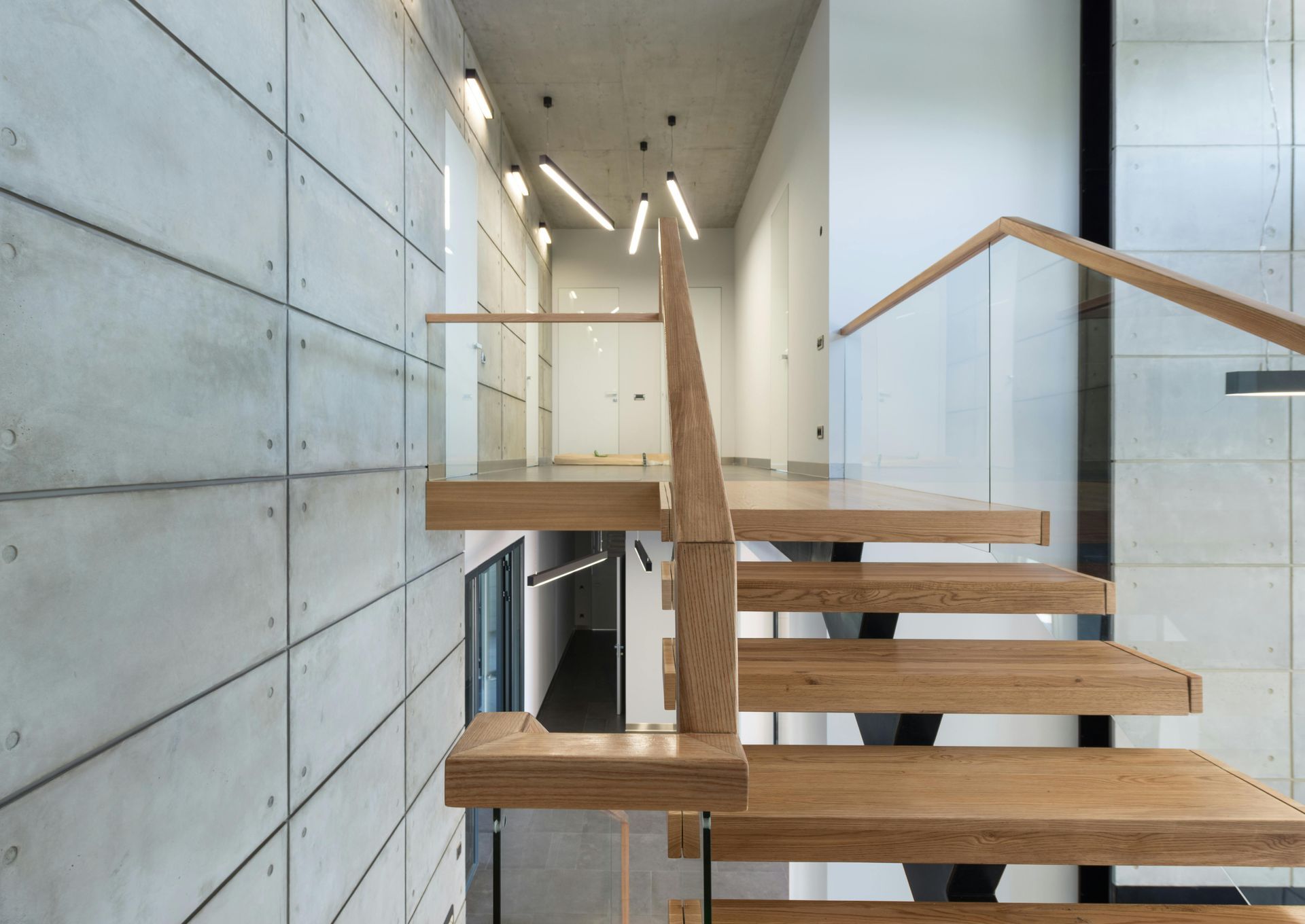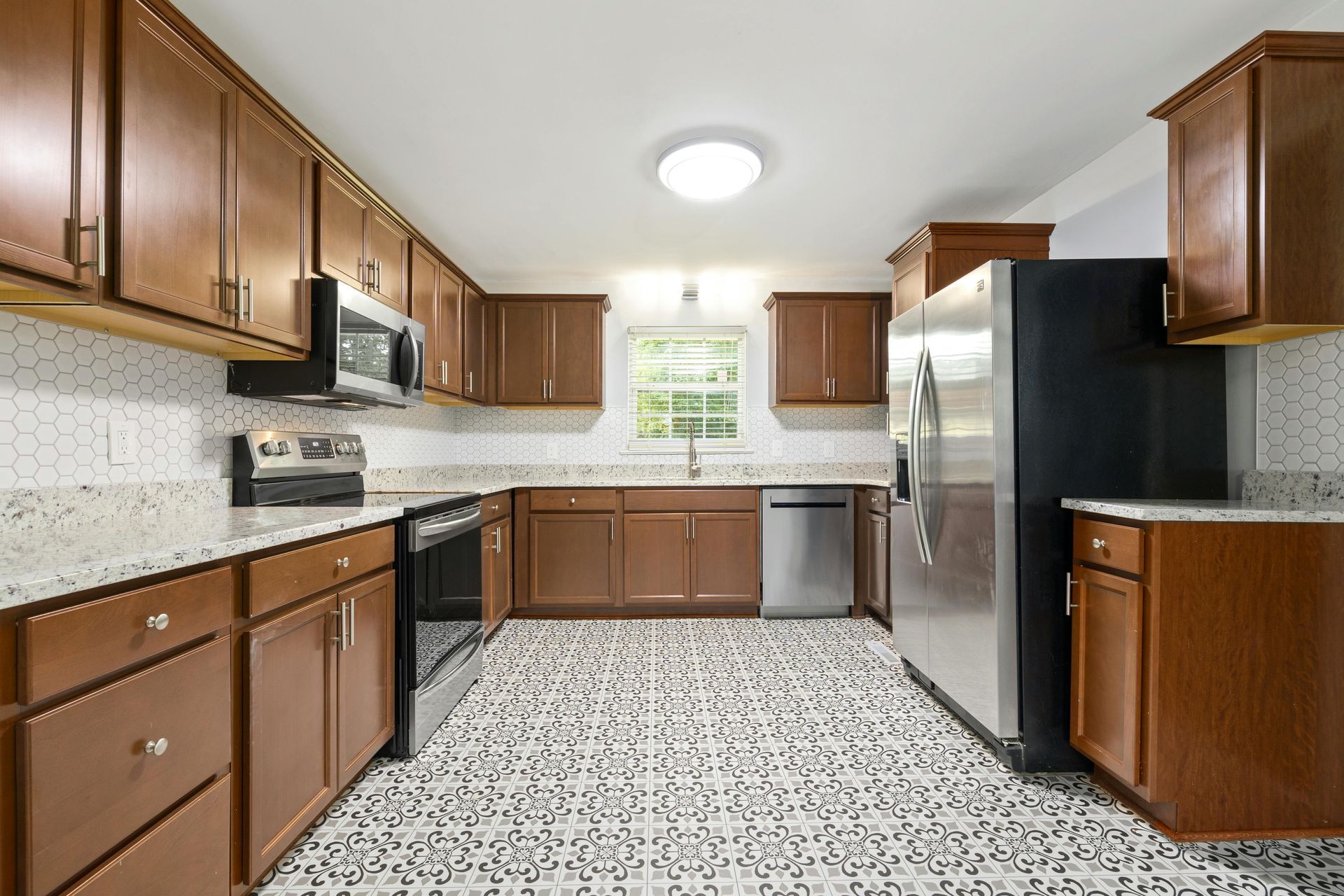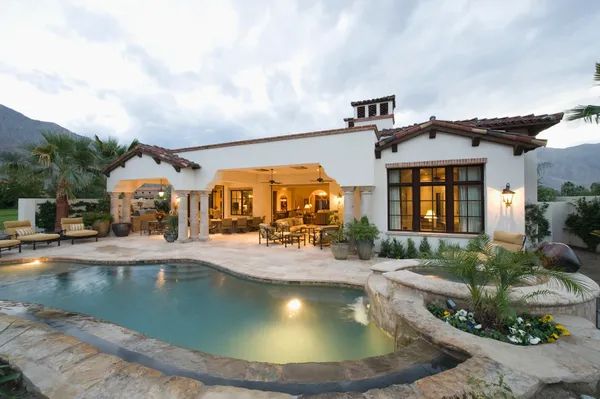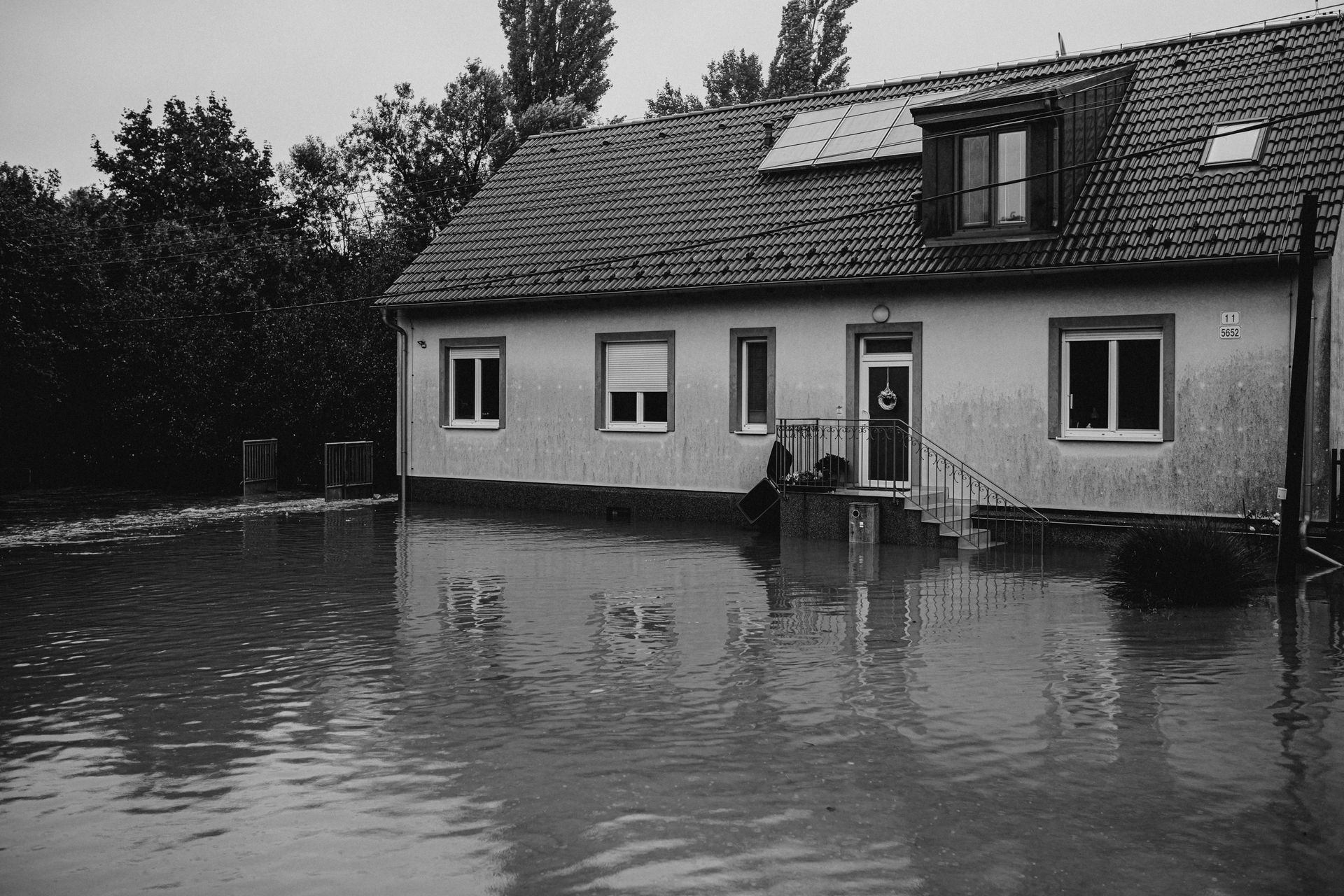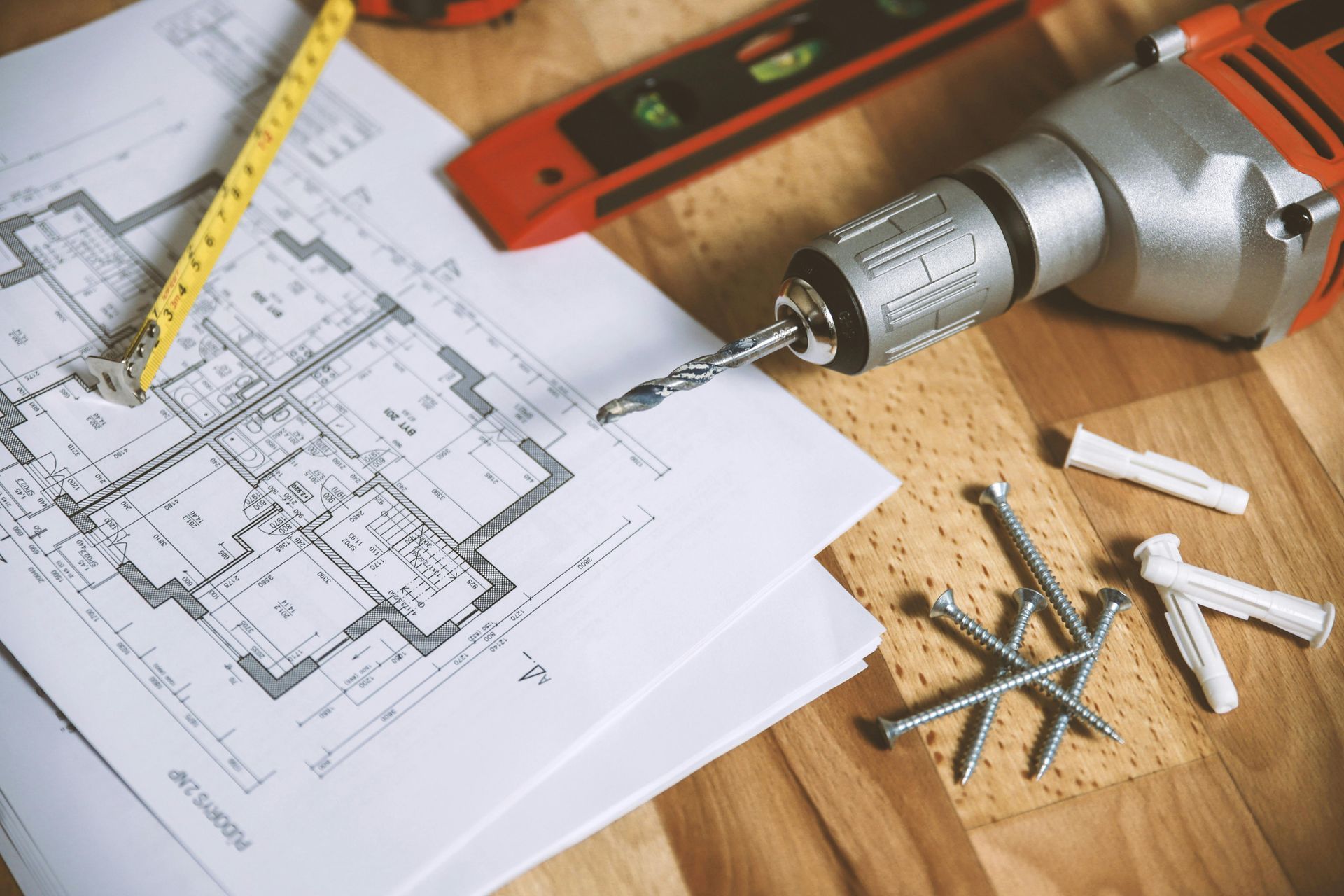Energy-Efficient Appliances and Fixtures for Kitchen Remodels
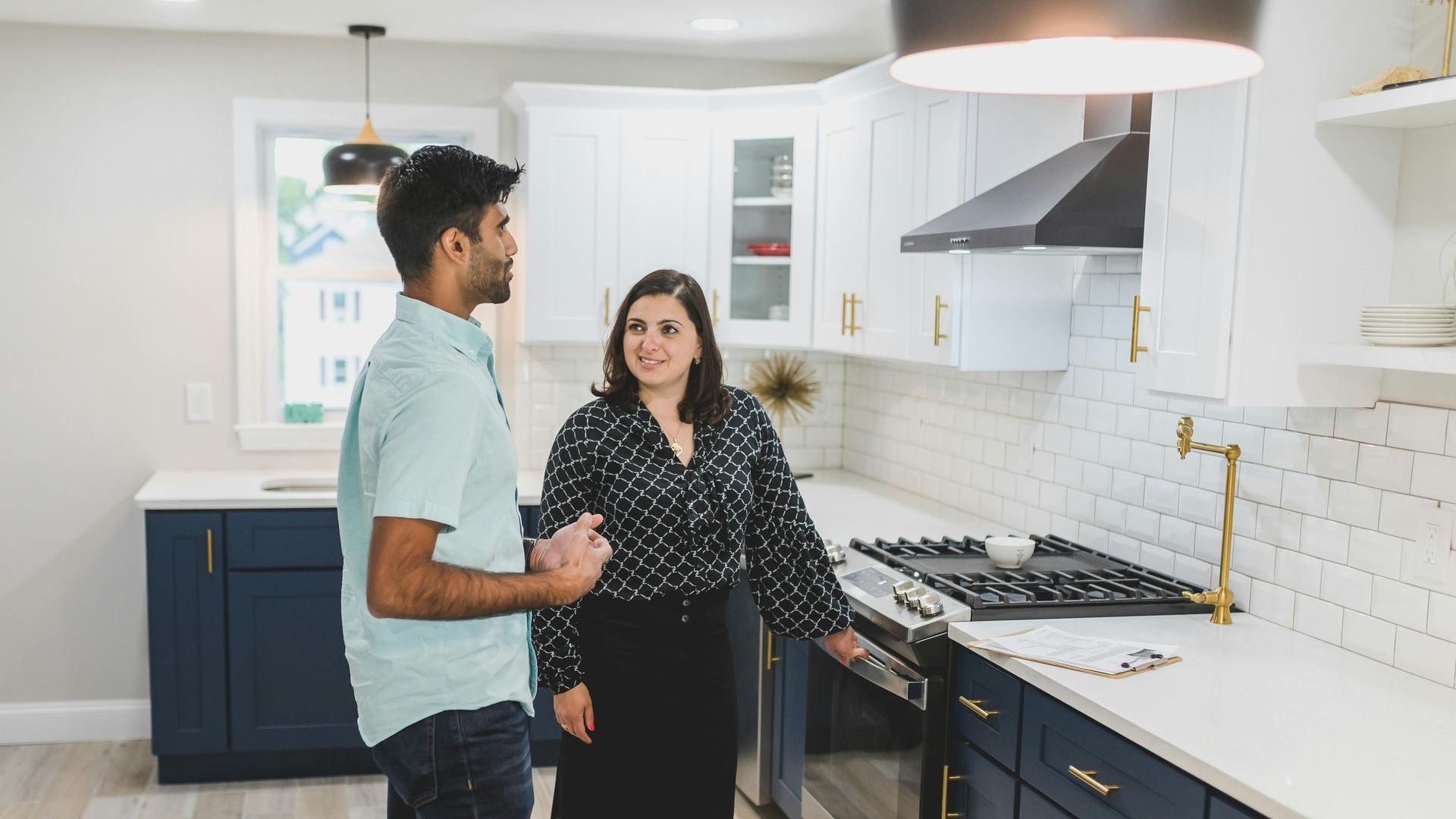
Planning a kitchen remodel is the perfect chance to improve both the look and performance of your space. The kitchen is one of the most energy-intensive areas in the home, with appliances, lighting, and refrigeration alone making up about 25% of total household energy use.
By choosing energy-efficient appliances and fixtures, you can significantly reduce your utility bills while making your kitchen more functional, modern, and eco-friendly.
Why Energy Efficiency Matters in Modern Kitchens
Energy efficiency in the kitchen isn’t just a trend—it’s a smart way to future-proof your home. Kitchens use more energy than any other room in the house thanks to big-ticket appliances like refrigerators, dishwashers, and ovens. Swapping outdated equipment for energy-efficient options can lead to significant savings.
Lower Utility Bills and Long-Term Savings
Energy-efficient appliances are designed to do more with less. That means:
- Less electricity and water usage
- Smaller monthly utility bills
- Fewer breakdowns and repairs
You might pay a little more upfront, but the long-term savings are real. According to the Department of Energy, homeowners can save up to $450 per year just by switching to ENERGY STAR®-rated appliances.
Environmental Benefits and Sustainability Goals
Reducing your kitchen's energy and water consumption means you're also helping reduce greenhouse gas emissions. Every time you run a more efficient dishwasher or use a low-flow faucet, you're making a small but meaningful contribution to a healthier planet.
Water-Saving Fixtures for an Eco-Friendly Kitchen
Saving energy is great, but don’t forget about water use. A lot of kitchen water gets wasted through outdated or inefficient fixtures.
Low-Flow Faucets and Aerators
Low-flow faucets reduce water usage without sacrificing pressure. Most modern options come with built-in aerators that mix air with water to give you a full stream using less volume.
Installing a faucet with a flow rate of 1.5 gallons per minute (GPM) instead of the standard 2.2 GPM can save thousands of gallons annually.
Touchless Faucets: Hygiene Meets Efficiency
Touchless faucets aren’t just cleaner—they’re also smarter. Since they only run when you need them, they eliminate the waste that comes from leaving the water on too long while cooking or washing.
Sink Materials That Support Sustainability
If you're going all-in on your eco-friendly kitchen remodel, consider sinks made from recycled materials like stainless steel or recycled composite granite. These materials are durable and easier to recycle at the end of their lifespan.
Lighting Upgrades That Cut Energy Costs
Kitchen lighting plays a significant role in your overall energy use. If you're still using incandescent bulbs, it's time for an upgrade.
LED vs. Incandescent: Why the Switch Matters
LEDs use at least 75% less energy than traditional bulbs and can last 25 times longer. That means fewer replacements, less waste, and noticeable energy savings.
Task Lighting vs. Ambient Lighting: Optimize Both
Use task lighting (under-cabinet lights, pendant lights) only where needed, and pair it with soft ambient lighting for the rest of the room. This layered approach uses light efficiently without over-illuminating.
Smart Lighting Controls for Extra Savings
Install dimmer switches, timers, or motion sensors to control when lights are on and at what brightness. Smart lighting systems can even adjust to the time of day to reduce unnecessary use.
Kitchen Layout and Design Tips for Energy Efficiency
Efficiency isn’t just about what you install—it’s also about how your kitchen is laid out. A smart layout can reduce wasted energy, streamline your workflow, and make everyday tasks easier. From appliance placement to natural lighting, thoughtful design choices can significantly impact how much energy your kitchen uses.
Appliance Placement and Workflow Optimization
Position appliances in a way that reduces energy waste:
- Keep your refrigerator away from heat sources like ovens or direct sunlight
- Place your dishwasher near the sink to reduce pipe length and water waste
- Ensure good ventilation to keep your cooling appliances running efficiently
Maximizing Natural Light and Ventilation
Design your kitchen to take advantage of daylight and fresh air. Use larger windows or skylights where possible. Better airflow also reduces the need for energy-guzzling exhaust fans or cooling systems.
Choosing Energy-Efficient Kitchen Appliances
There’s no shortage of options when it comes to energy-smart appliances. But not all are created equal. Understanding the labels and features will help you choose the right ones for your space and budget.
What to Look for
ENERGY STAR® is the gold standard for appliance efficiency. Products with this certification meet strict energy guidelines set by the Environmental Protection Agency.
When shopping, keep an eye out for:
- The blue ENERGY STAR® label
- The yellow EnergyGuide label (which shows estimated yearly energy use and cost)
- Models with inverter technology (for consistent, low-power performance)
Best Energy-Saving Refrigerators, Dishwashers, and Ovens
If you're picking just one appliance to upgrade, start with the refrigerator. It runs 24/7, so even small efficiency gains add up.
Top upgrades include:
- Refrigerators with variable-speed compressors and intelligent temperature control
- Dishwashers that use less water per cycle and include eco-modes
- Induction cooktops which are more energy-efficient and faster than traditional electric or gas stoves
Smart Appliances: Are They Worth It for Efficiency?
Smart appliances let you monitor and control usage via an app. You can schedule dishwashing cycles during off-peak hours or check fridge temperatures remotely. They also diagnose problems early, which helps prevent energy waste.
If your lifestyle leans into smart home tech, these appliances are a solid match for convenience and savings.
Cost vs. ROI: Are Energy-Efficient Upgrades Worth It?
Energy-efficient appliances and fixtures typically cost more upfront, but the long-term value is hard to ignore. Lower monthly utility bills, fewer repairs, and extended lifespans all contribute to a solid return on investment over time.
Here’s a quick look at potential savings:
- Refrigerator: Upgrading to an ENERGY STAR® model can save up to $300 over its lifespan, thanks to better insulation and smart temperature regulation.
- Dishwasher: Modern energy-efficient dishwashers can save up to 3,800 gallons of water over five years, reducing both water and energy bills.
- Induction cooktops: These heat more quickly and lose less energy than gas or standard electric coils, making them both faster and more efficient.
You can also offset costs with incentives. Local utility companies and government programs often offer rebates or tax credits for energy-efficient upgrades. To find what’s available in your area, visit the Database of State Incentives for Renewables & Efficiency (DSIRE), a comprehensive resource for current rebates, tax credits, and energy-saving programs nationwide.
Final Tips for an Energy-Smart Kitchen Remodel
Energy-efficient kitchens are about smart planning and thoughtful choices. From layout to fixtures, every detail can reduce your environmental impact and lower your monthly bills.
Work with Contractors Familiar with Green Remodeling
Hiring a contractor who understands energy-efficient design is key to getting real value from your remodel. Sunshine State specializes in sustainable kitchen upgrades that combine performance, aesthetics, and long-term energy savings. Their team brings hands-on expertise in installing high-efficiency appliances, eco-friendly fixtures, smart lighting systems, and layout strategies that reduce energy waste.
Sunshine State also helps clients navigate rebate programs and choose materials that align with both budget and environmental goals. With a reputation for detail-oriented work and a strong commitment to green building practices, Sunshine State is a smart partner for anyone planning an energy-conscious kitchen renovation.
Check for Local Incentives
Before you buy anything, check with your local energy provider or municipal government. You might qualify for cash rebates, tax credits, or even free installation on select upgrades.
Conclusion
An energy-efficient kitchen remodel is a smart investment that lowers utility costs and supports sustainability. The right appliances and layout make a big difference, but working with professionals who specialize in green remodeling ensures you get the most value, performance, and long-term savings from your upgrade. Start planning your energy-smart kitchen today and turn your vision into a lasting, high-efficiency space.

Quick Links
Contact Details
Address:
8638 Philips Highway, Suite 03 & 04, Jacksonville, Florida 32256
Phone:
Email:
Business Hours
Mon - Fri: 7:00 AM - 5:00 PM
Sat - Sun: Closed
Our Service Areas
Kitchen Remodel
Bathroom Remodel
All Rights Reserved | Sunshine State Professional Services, Inc.
Site by Spearlance

